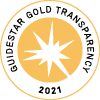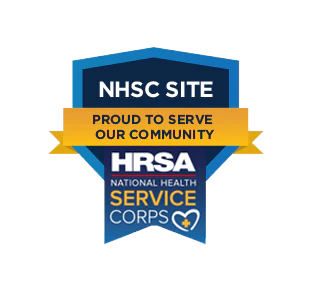Privacy Policy
POWER’s Full Privacy Notice
This notice describes, in detail, how POWER will use and share medical- and substance use-related information about you, and how you can get access to this information. Please review it carefully.
Introduction
Information about your health care and alcohol and other drug treatment, including payment for services, is protected by two federal laws:
- The federal alcohol and drug confidentiality regulations (42 C.F.R. Part 2), and
- The Health insurance Portability and Accountability Act of 1996 (HIPAA, 45 C.F.R. Parts 160 and 164)
Under these laws, POWER may not say to a person outside of POWER that you attend the program, nor may we disclose any information identifying you as an alcohol or drug abuser, or disclose any other protected information except as permitted by federal law.
This Notice of Privacy Practices describes how we may use and share your information to carry out treatment, payment or health care operations; and for other purposes that are permitted or required by law. This Notice also describes your rights regarding information we maintain about you and a description of how you may exercise your rights, as well as states the responsibilities that we have to protect your information.
“Protected health information” means health information, including identifying information, which we have collected from you or have received from other providers about you. This may include information about your past, present, or future physical, mental, or drug and alcohol condition.
Because POWER understands that this information is personal, we respect your privacy. As we work with you, we create and maintain a record of information about the care and services that you receive at POWER. This information is needed to provide you with the best care possible, and to comply with the law.
We are required by law to maintain the privacy of your health and behavioral health information, and to provide you with this Notice of our privacy practices.
All of the staff, volunteers and interns who work on behalf of POWER must follow these privacy practices. It is our duty to protect your health and drug and alcohol information. POWER must get your written consent before we can share information about you. There are exceptions to the federal law, however, that permit POWER to disclose information without your written permission:
- Business Associates. POWER may share your information with others called “business associates,” who perform services on our behalf. The business associate must agree in writing to protect the confidentiality of the information. Examples of a business associate may be a billing company that bills for the services POWER provides, or an attorney who is contracted to provide legal advice regarding certain matters.
- Research, Audit or Evaluations. If your records are not copied or removed, they may be reviewed on program premises to perform research, audit, or evaluation.
- Crimes Committed on Premises or Against Staff. POWER may, without your permission, report any crime you commit on the agency’s premises or against a program staff.
- Medical Emergency. In a medical emergency, POWER may disclose to medical personnel information that would be helpful in providing you with care.
- Suspected Child Abuse. Disclosure to appropriate authorities to report suspected child abuse or neglect is permitted.
- Court Order. Disclosures, as allowed by Court order, are permitted without your consent.
Additionally, POWER staff may share information about you with other POWER staff, on a “need-to-know” basis, within and between our programs to ensure quality care, effective treatment planning, and to provide you with treatment and supportive services.
Before POWER can use or disclose any information about you in a manner that is not described above, we must first obtain your specific written consent allowing us to make the disclosure. You may revoke, in writing, any written consent you give.
Your Rights
Under the law, you have the following rights:
- Right to Inspect and Copy. You have the right to ask to see or copy certain information contained in your record that are used to make decisions about your care, including decisions about payment for your care. The exceptions to this include any information that contains psychotherapy notes or information that will be used in a civil, criminal, or administrative proceeding. You must make your request in writing to our Privacy Officer at POWER, 907 West Street, 2nd Floor, Pittsburgh, PA 15221.
If you request a copy of the information, we may charge a fee for the cost of copying and mailing that information. We may tell you that you cannot see or copy all or part of your health and drug and alcohol information in certain circumstances. If the Executive Director does not reverse the original decision, you may go to Allegheny County (or your home county) and follow their Grievance Process.
POWER must act on your request to see your information no later than 30 days after we receive the request. If the information is not maintained or accessible at the program’s site, POWER will have 60 days to respond. In any case, POWER may provide a summary of the requested information instead of providing access, or may provide an explanation of the information if you agree in advance. - Right to Ask for Corrections. If you feel we have incorrect or incomplete information about you, you have the right to ask that it be amended, or corrected. You have this right for as long as we keep your records. You must put your request in writing to the Privacy Officer at POWER, 907 West Street, 2nd Floor, Pittsburgh, PA 15221 and include your name, address and telephone number; and the reasons why you believe the information to be incorrect or incomplete. We have the right deny your request under certain limited circumstances, but will notify you of our decision.
- Right to Ask for an Accounting of Disclosures. You have the right to request an “accounting of disclosures.” This is a list of people who are not connected to POWER that have received your health and drug and alcohol information. Again, your request must be made in writing and addressed to the Privacy Officer at the above address. Your request should include how far back you want us to go, up to six (6) years before your request, but not before April 14, 2003.
- Right to Ask for Limits on Use and Sharing. This means that you have the right to request restrictions on certain uses and disclosures of your information. POWER is not required to agree to your request, but if we do, we will not follow your request in the case of a medical emergency.
- Right to Request Confidential Communications. You have the right to ask POWER to communicate with you by alternative means or at alternative locations in order to provide you with more privacy. For example, you may ask that we call you are work or only contact you by mail. POWER will make every effort to accommodate you as long as your requests are reasonable, and we will not ask for explanation from you.
- Right to Ask for a Paper Copy of this Notice. You have the right to ask for and receive a paper copy of POWER’s Notice of Privacy Practices at any time. One will be provided to you at admission to any of our programs, but you can always get another copy of this Notice by contacting our Privacy Officer at POWER, 907 West Street, 2nd Floor, Pittsburgh, PA 15221, or by visiting our website at www.power-recovery.com.
POWER’s Duties
POWER is required by 42 C.F.R. Part 2 (federal drug and alcohol confidentiality regulations) and 45 C.F.R. Parts 160 and 164 (federal regulations known as the Health Insurance Portability and Accountability Act of 1996 or HIPAA) to maintain the privacy and confidentiality of substance abuse and other protected health information records. As a general rule, we may not tell a person outside of POWER that you are a client of any of our programs, or disclose information that identifies you as an alcohol or drug abuser, unless:
- You authorized the disclosure in writing
- The disclosure is permitted by a Court order
- The disclosure is made to medical personnel in a medical emergency
- The disclosure is made to qualified personnel for research, audit, or program evaluation purposes
- You threaten to commit a crime either at the program or against any person who works for POWER
Complaints
If you believe your privacy rights have been violated by POWER, you may file a complaint with us. You can do this by contacting the Privacy Officer at POWER at POWER, 907 West Street, 2nd Floor, Pittsburgh, PA 15221. For more information on how to file a complaint, you may call the Privacy Officer at 412-243-7535, ext. 218.
You may also file a complaint with the Secretary of the United States Department of health and Human Services. Put your complaint in writing to: U.S. Dept. of Health & Human Services 200 Independence Avenue, SW Washington, DC 20201.
You will not be penalized by POWER in any way for filing a complaint.
Violation of the Confidentiality law by a program is a crime. Suspected violations may be reported to the United States Attorney in the district where the violation occurs.
Changes to this Notice
We reserve the right to change the terms of this Notice. We also reserve the right to make the revised or changed Notice of Privacy Practices effective for all health information we already have about you, as well as any health information we receive in the future. We will post a copy of the current Notice at our program sites. You may also ask for a copy by calling us at 412-243-7535 or visiting our website at www.power-recovery.com.



